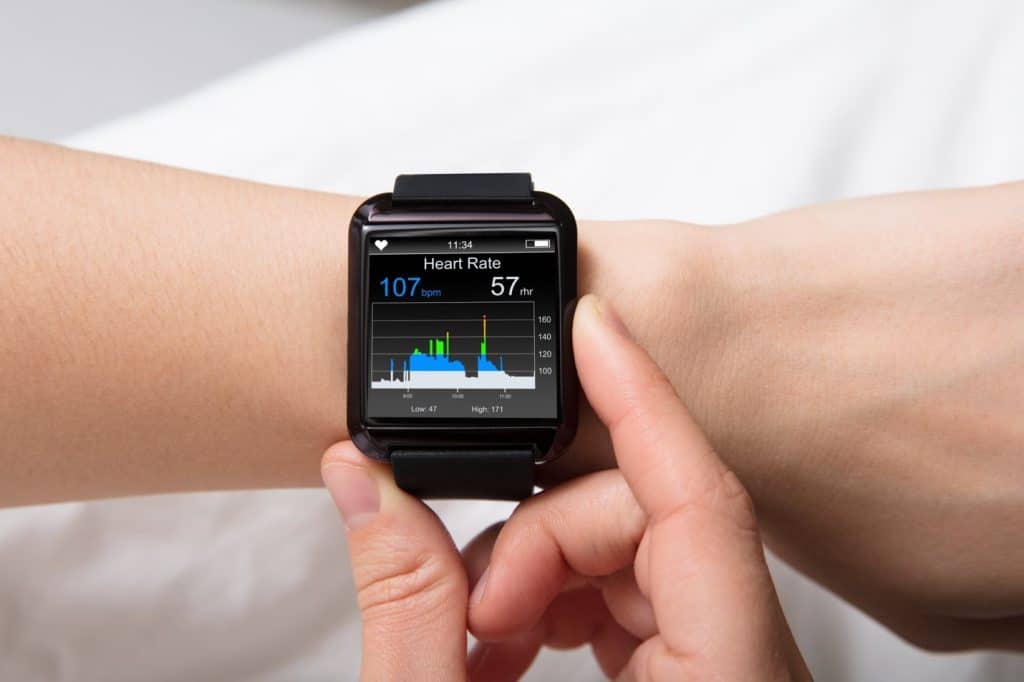These days we have no shortage of data but how much of it is actually useful and how should we be applying it? We cover how to identify advantages and pitfalls.
Aside from not being sure if ‘data-fied’ is actually a real word, I think you get the point.
Recently, a post caught my eye that gave me pause. It was about how Tadej Pogacar (arguably, the best cyclist in the world) crashed before the final climb in a stage of the Giro d’ Italia, changed his bike and still won the stage. The shocking part? It wasn’t that he crashed or that he was behind the leaders and had to chase back and attack them to win. No… the shocking part based on the post was that he rode the final climb to win WITHOUT a power meter on his bike! Imagine that?!

His spare bike that he switched to didn’t have a power meter and therefore he had to ride by ‘feel.’
The post more or less insinuated that in order to have a good ride (or climb, in this case), you need to have a power meter so that you know your power output and thus, know how to dose your effort and what Tadej did was shocking due to his success and lack of power knowledge.
Technology Everywhere

I get it. Tech is cool – and it’s everywhere! I swear, a month doesn’t seem to go by without a new training technology company coming to market. While I don’t have the finger muscle endurance to write all of the training tech areas, let’s just state some of the more popular and recent ones:
- Heart Rate
- Pace/Speed Display
- Lactate Threshold
- Power
- Glucose Monitoring
- Sweat Analysis
- Aerodynamics
- VO2 Max
- Blood Biometrics
- Core Body Temperature
As these are only some of the areas of training tech on the market – especially wearables, you can see how this space is getting very crowded and also very confusing. While I’m not an expert in this area, I have had the unique privilege through UESCA to learn more about these areas via industry experts and sport scientists and guess what? I’m still about as clear as mud on a lot of them! So, if I’m that clueless when it comes to a lot of metrics, how do you think that bodes for the average athlete trying to figure this stuff out?
Correlation of Data
As noted in the prior section, there is A LOT of data out there. In my opinion, and that of experts, the value of a lot of this data is not in a singular data point, but in the correlation of those points.
Here is an example of what I mean. When it comes to weight loss, I would venture that most people use body weight as the sole benchmark. However, this is just one very broad view and in my opinion, a non-complete one at that. Unless you also take into consideration body composition, you will not know if the weight gain or loss is attributable to fat, muscle or some of both. As such, body weight alone does not give a clear and complete picture of what is going on. This is corollary to training and racing metrics as well. Unless you understand and appreciate how two or more metrics interrelate to each other, it will likely be hard to gain a meaningful understanding of the data and therefore, how to use it for maximum benefit.
Phobia
I had a conversation with Dr. Justin Ross, a sports psychologist who we collaborate with, on the topic of training tech that was pretty mind-blowing. He told me about an athlete that he works with who ran a 10K race but forgot his smart watch. The result? He ran his fastest race ever at that distance because he ran by ‘feel’ and not by basing his pace off the metrics on his smart watch.
Given his performance sans smart watch, when Dr. Ross asked the athlete if they planned to continue to race without their smart watch, their response was a resounding, “Hell no!” This demonstrates how reliant and to a degree, scared some athletes are to train and, or race without a bunch of data on their wrist or handlebars.
Sh#t Happens

Technology is great until it is not. Running an online business has taught me that technology is great when it works. When it doesn’t, it’s a bona fide nightmare! The fact of the matter is that technology can malfunction, give incorrect outputs and at times, stop working altogether.
The more reliant you are on data to guide your workouts and races, the more vulnerable you are should that data stop working. This is why Rate of Perceived Exertion (RPE) is so important. RPE is a metric that is based on how you are feeling from the standpoint of exertion and as such, there is no tech involved. In my opinion, RPE is the most important and valuable performance metric for a lot of reasons.
Not only can technology fail, but a lot of times the data doesn’t give the full picture or doesn’t take other factors into account – more on this in the next section. Therefore, at the end of the day, the only 100% reliable data point is RPE. For individuals such as myself who grew up with minimal training technology, understanding and using RPE was a necessity and the main training/racing effort guide. However, for those who got into endurance sports since the advent of much of today’s training technology, the reliance upon such tech is likely a real thing.
Factors that Mess Up Data
Here’s the thing – data is great but unless you know and appreciate the various shortcomings of specific data points and things that can affect them, you will likely utilize the data in a less than ideal manner.
Things such as mental fatigue, environmental considerations (i.e., heat, humidity, altitude), cardiac drift (rising heart rate with the same effort level) and uneven terrain are just a few variables that can lead an individual to misinterpret data if they don’t take these things into consideration.
Have Fun!

During my time as a personal trainer/cycling coach, I had a client who was an avid cyclist and also a quantitative hedge fund manager. For those of you unfamiliar with quants, as they’re called; they are finance professionals who use complex mathematical algorithms to base their investing/trading strategy on. As you can imagine, these professionals stare at computers all day and more specifically, at numbers.
As such, I assumed that when he rode, he would do so with every conceivable data metric flowing into his bike computer. I was wrong. When I asked him about it, he replied, “I totally get the utility of the data, but I stare at numbers all day so the last thing that I want to do when going out for a bike ride is to stare at more numbers.”
I found his response to be quite profound because while he was able to appreciate the value of training data, his ‘purpose’ of riding was for the enjoyment of the ride, and not his performance metrics.
My big takeaway from this conversation was that if you want to utilize data during your runs/rides/swims/etc… great! If you don’t want to and just want to go out there and enjoy the pureness of not having any tech with you… great as well!
Summary
To be clear, I’m not anti-technology. In fact, I’m a huge proponent of it! The point of this post is to draw attention to potential short comings of technology, and the importance of understanding the value of correlating data to gain meaningful and actionable information.
And perhaps the most important point of this post is to remember to unplug every now and then and just enjoy your ride/run/hike/etc…








